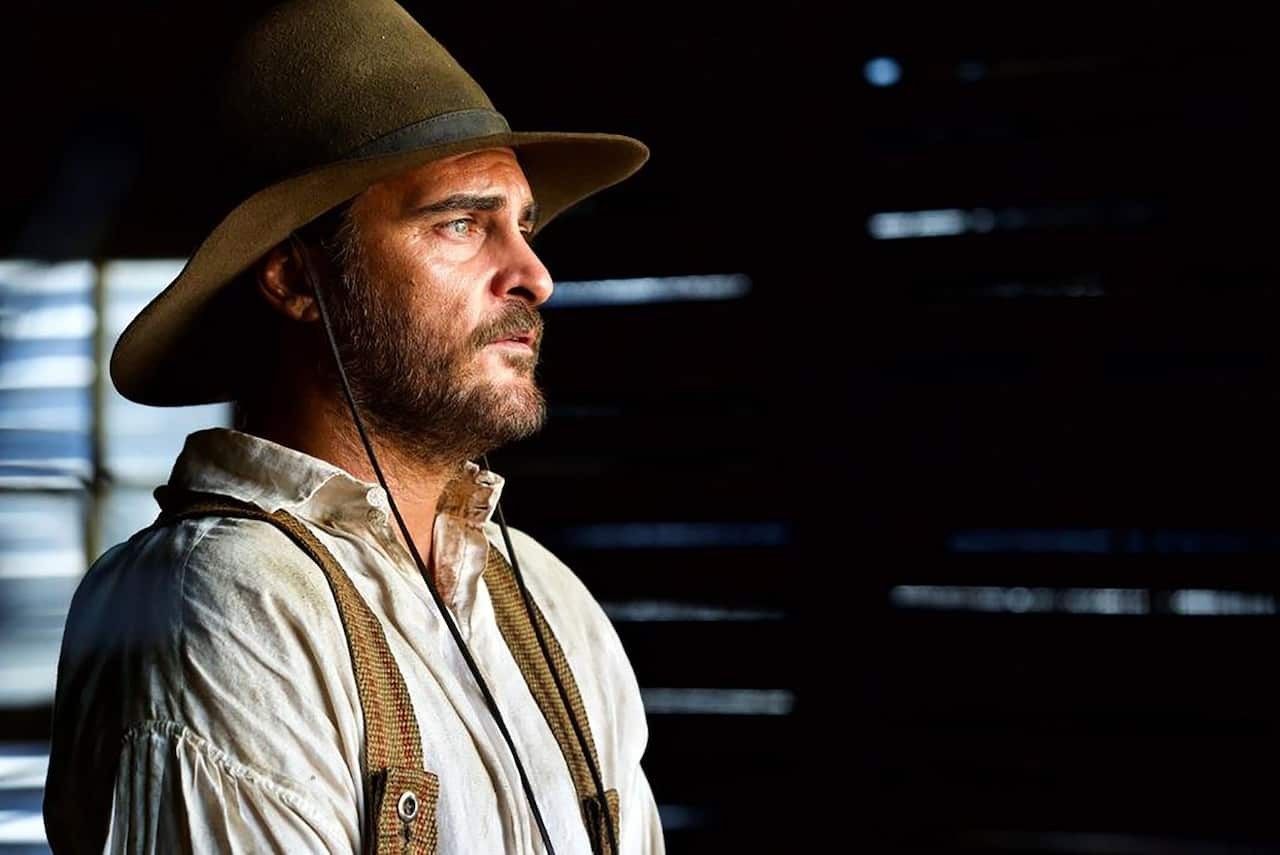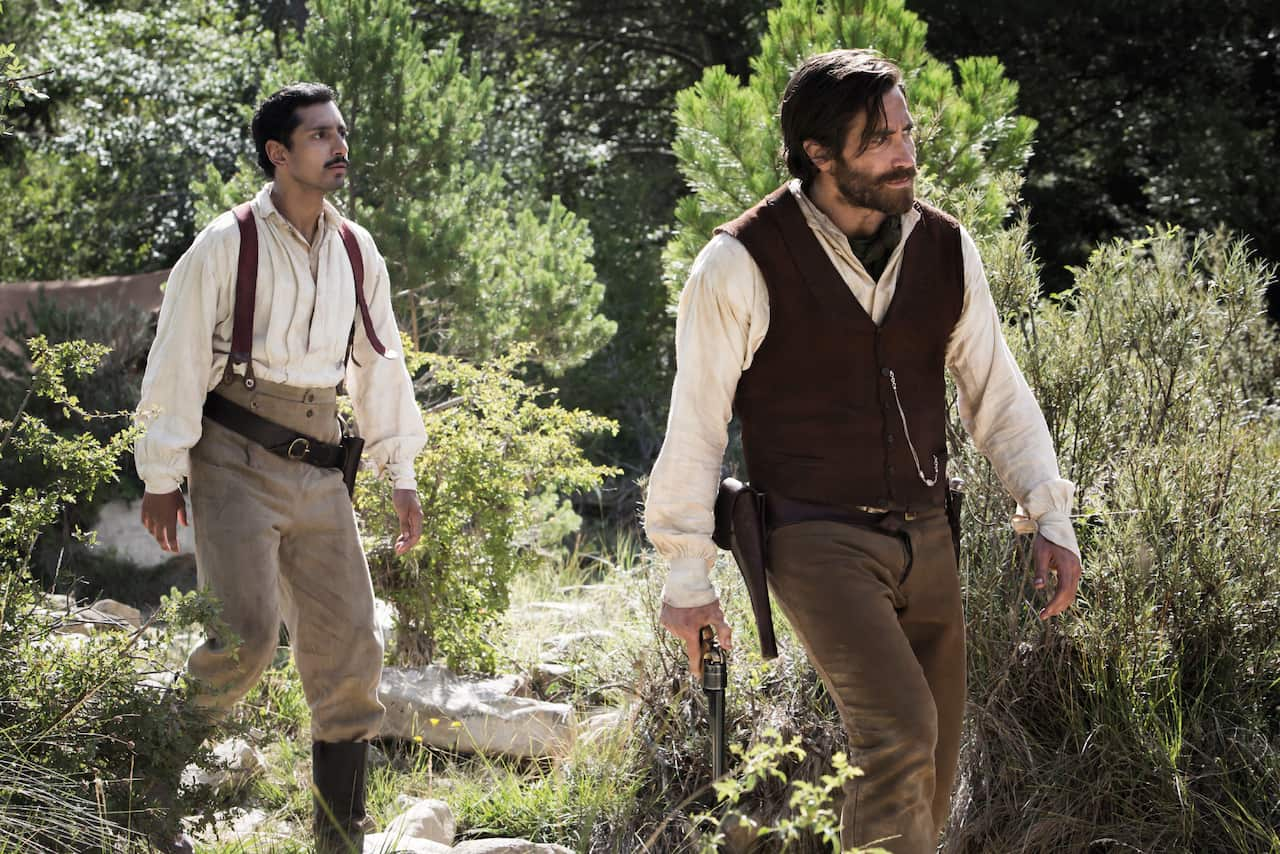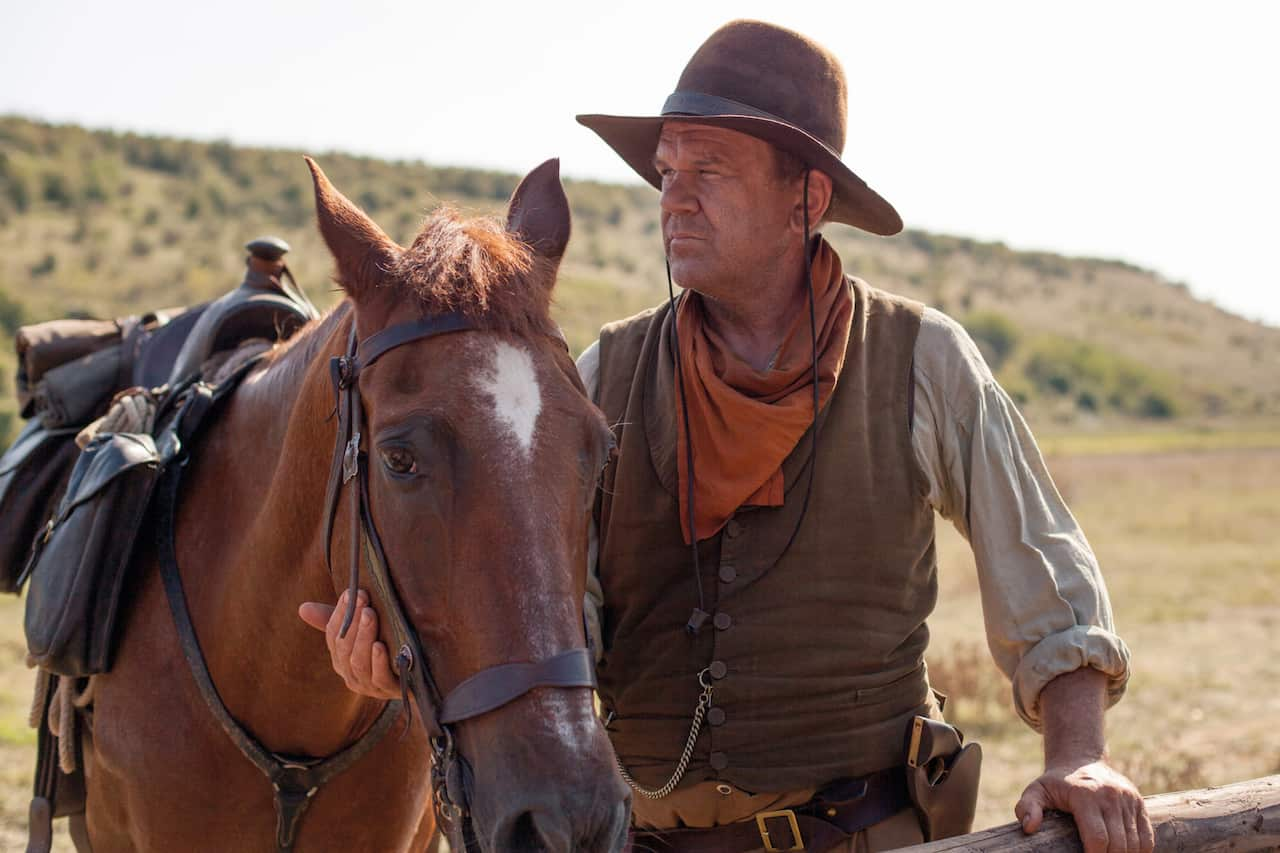The austere foyer of Melbourne’s Sofitel on Collins Street is momentarily disturbed by a burst of unruly laughter. Celebrated French filmmaker Jacques Audiard is conveying, partly via a suddenly cautious translator and partly in his own pretty decent English, that he is not, in any way, attracted to horses. Or orcas.

French filmmaker, Jacques Audiard. Source: Universal Pictures
Cutting a dashing figure in a navy blue cardigan, pale shirt and green tie, it’s an entirely roguish clarification from a witty raconteur that comes about while we discuss the role of desire in filmmaking. “There is a certain erotic vision you have as a director, in a sense, because if I did not desire the people that I put up there on screen, what can I do?” he asks.
That applies only to his human stars, not the killer whale from Rust and Bone, nor the equine support in his English-language debut . Currently screening nationally as part of the , it cuts decisively into a dark seam of humour that has previously only been subtly referenced in his powerful films about lost souls transformed by arduous experiences and unexpected bonds, including A Prophet and the Palme d’Dor-winning Dheepan.
Adapted from the novel by Canadian writer Patrick deWitt in concert with Audiard’s regular writing partner Thomas Bidegain, at first it plays by the rules, and then rewires the testosterone-heavy tropes of the western genre. Joaquin Phoenix and John C. Reilly play mismatched brothers Charlie, an unpredictable drunk, and Eli, his older but more submissive brother, respectively. Killers for hire riding the wilds of 1850s Oregon on horseback during the brutal gold rush fever, “They are adolescents really, performing masculinity,” Audiard says. The Sisters Brothers takes the director’s interest in transformative power and makes it literal in a MacGuffin of sorts, an elixir invented by Riz Ahmed’s unfeasibly named, idealistic prospector Hermann Kermit Warm. Glowing when it comes into contact with gold resting on a riverbed, the revelatory, fortune-making power sees a price put on Hermann’s head by Rutger Hauer’s almost entirely unseen Commodore. The brothers’ mission to kill him and retrieve the liquid is aided by Jake Gyllenhaal’s snooty scout, John Morris. But like most good things in Audiard’s movies, this gift comes at a great price, and things do not play out exactly as expected.
The Sisters Brothers takes the director’s interest in transformative power and makes it literal in a MacGuffin of sorts, an elixir invented by Riz Ahmed’s unfeasibly named, idealistic prospector Hermann Kermit Warm. Glowing when it comes into contact with gold resting on a riverbed, the revelatory, fortune-making power sees a price put on Hermann’s head by Rutger Hauer’s almost entirely unseen Commodore. The brothers’ mission to kill him and retrieve the liquid is aided by Jake Gyllenhaal’s snooty scout, John Morris. But like most good things in Audiard’s movies, this gift comes at a great price, and things do not play out exactly as expected.

Joaquin Phoenix as killer for hire, Charlie Sisters. Source: Universal Pictures
I found myself questioning, in its unexpectedly tender final act, whether my own bias as a gay man read a little too much into the bond between Hermann and John, particularly in a longing campfire look. “It’s not you, it’s me,” Audiard interjects in English again, an amused grin lighting his face. “I’m the director.”
Elaborating, he says their bond is intentionally deeper. “There is a real complexity to that relationship, so you read whatever you want, however, that attraction is there. They have the same dream, and there must be a kind of jealousy that others may take what they have together. It’s not only about the gold, and the formula.”
Nor is it about the lack of women in this landscape, he adds, noting that his own eye is often drawn to fascinating men without fear of labelling what that connection might mean. “Does that make me gay? Maybe. I don’t really care.” Reilly bought the film rights and brought the book to Audiard’s attention, an approach that won over the director. “I had had people come from America with projects before, but here the difference was it didn’t come from producers. It was an actor, and that is very touching. Very special.”
Reilly bought the film rights and brought the book to Audiard’s attention, an approach that won over the director. “I had had people come from America with projects before, but here the difference was it didn’t come from producers. It was an actor, and that is very touching. Very special.”

Riz Ahmed and Jake Gyllenhaal in 'The Sisters Brothers'. Source: SBS
Whatever your take on Hermann and John, the film queers the genre in more ways than one. There’s a maternal rewrite of The Searchers’ iconic prodigal-son-returns finale featuring Unbreakable Kimmy Schmidt star Carol Kane, and the inspired casting of a scene-stealing Rebecca Root (Colette, The Danish Girl), a trans woman in a pivotal cisgender role as a brothel owner who rules unbendingly over a town named after her.
The men may take up most of the screen time, but their modus operandi is interrogated. “The hidden foundation of westerns is the question, ‘what are we going to do with the violence and the horror of the founding fathers?’” Audiard offers. “They are not heroes.”
He brings an outsider’s view that was similarly captured by countryman David Oelhoffen in the Algerian-set western Far From Men, starring Viggo Mortensen and Reda Kateb. The Sisters Brothers may be set in America, but it is written by a Canadian, adapted by a Frenchman and filmed in France, Spain and Romania. Though, Audiard’s quick to point out that the Oregon of the 1850s would have been abuzz with many tongues. “It was a moment of huge migration in America, Babel-like with everybody speaking different languages, be they Russians, Spanish, Yiddish definitely, French as well. And actually being on set in Romania, it was really like that.” Working through a translator also gave Audiard more time to reflect on his deliberations, he says. “It’s a very, very different way of working, this constant triangulation which gives you more time to breathe, you know? It’s quite funny.”
Working through a translator also gave Audiard more time to reflect on his deliberations, he says. “It’s a very, very different way of working, this constant triangulation which gives you more time to breathe, you know? It’s quite funny.”

John C. Reilly approached Jacques Audiard to make the film. Source: Universal Pictures
I recall reading an interview in which Audiard said of working with the Tamil actors on Dheepan, including Antonythasan Jesuthasan, that, “With French actors, I’m going to be finicky. Here, I encouraged them to create their own scenes.”
Was there a similar approach on The Sisters Brothers? “Not really. I had no idea about the Tamil language, and they did not understand me either, but I understand English well enough. There was a bit of that on A Prophet, with the North African actors who spoke French, but with a kind of slang that I didn’t get at all. I just loved seeing them act.”
There’s a freedom in surrendering to visuals, Audiard insists. “Before Dheepan I was starting to feel the weight of being in charge of everything, so taking a step back from that was extraordinary. It forces you to pay closer attention to facial expressions and body language.”
Sifting for the gold between the lines, like that longing gaze between Ahmed and Gyllenhaal? “This is something magnificent.”
Jacques Audiard’s is currently screening around Australia as part of the .
Follow the author here:


